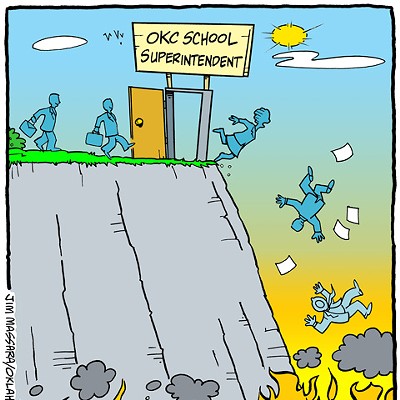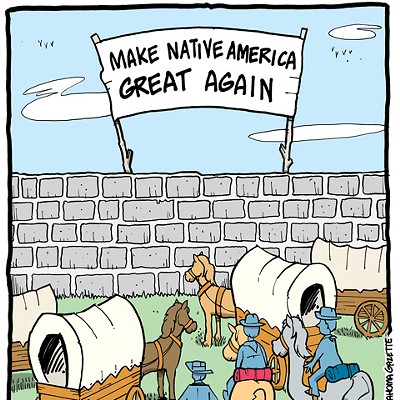I've spent more than 30 years of my life in the public eye " on television, as a candidate for governor, and as CEO and now dean of the Meinders School of Business at Oklahoma City University. When it comes to business attire, I'm old-fashioned. I believe clothes can make the man (or woman). Like it or not, people judge you by your appearance. If you look like you're in charge, people treat you accordingly (at least until your actions prove otherwise).
The other day, I heard it reported that only 6 percent of men wear a tie to work. I was 20 when I started teaching high school, 22 when I began teaching college. A suit and tie gave me some credibility. I wore them virtually every day teaching, and most days as the president and CEO of Eateries Inc. I wear them daily at the Meinders School of Business.
I have never liked "business casual" because it means different things to different people. At Eateries, employees frequently asked about wearing jeans on Fridays. I always said no; jeans weren't professional or businesslike. As with many universities, casual was the order of the day for most of the men on the Meinders School of Business faculty.
From day one, I encouraged everyone to take on a more "executive" appearance. I believe the faculty members should be role models in their appearance as well as mentors in their disciplines. Not every job requires a suit and not all companies want their managers in one, but there is a difference in white-collar and blue-collar jobs.
Business casual, however, has turned into a nightmare for many companies. It leaves dress to the discretion of the employee. A recent Time magazine article noted nearly half of people surveyed by Monster.com think exposed underwear is OK at work! The confusion explains why "the number of companies allowing workers to dress casually every day dropped from 48 (percent) in 2004 to 37 (percent) in 2007," according to Time.
The Meinders school recently sent eight students to a leadership conference in Shanghai, China. I told them the dress code was "corporate executive": suit and tie for the men and comparable attire for the women. While in Shanghai, a professor from San Diego University complimented me on the students' dress and pointed out most the other students attending the conference were anything but executive in appearance.
First impressions count, especially for college graduates looking for work. There's a reason parents dress their kids up for church and the military makes people wear uniforms. We act differently and sit up straighter when wearing a uniform, suit or dress than we do in casual clothing. One good navy or charcoal gray suit, solid white or blue shirts, and a few ties can make nearly any guy look professional. A couple of black or navy pantsuits and a "little black dress," and women gain that same professional appearance.
I know all of this sounds like Ward Cleaver telling Wally and Beaver what to do, but if you really want to get a job, give potential employers a reason to pick you out of the crowd of applicants. If you want a promotion, give the appearance of being responsible, a leader, qualified to do more and worth more to the company. A sloppy or just casual appearance can keep you from getting hired, promoted or even considered. Now, go clean your room!
Orza is dean of the Meinders School of Business at Oklahoma City University.












